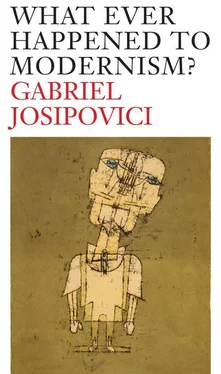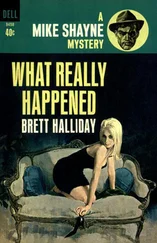a
picture of the world. Artists who felt ill at ease in the dominant traditions started to look behind that picture to the Middle Ages or beyond it to Africa, Japan or Bali, while historians, anthropologists and cultural analysts began to discover that cultures other than the dominant one were anything but benighted and barbaric, were in fact highly sophisticated and rich in tradition, though the premises on which their world pictures were based were radically different from those of the West.
As historians have increasingly been showing, and as I suggested in my discussion of the two Dürer engravings, the disenchantment of the world was not something that happened overnight, or even in the decade between 1517 and 1527. Things were quite different with the French Revolution. No-one in Europe had any doubt that something decisive, whether wonderful or terrible, had happened in 1789. What the Revolution did was give everyone the sense that even the most ordinary life could be changed. You were not stuck for ever in the place or the role into which you had been born. Everyone was now equal and everyone, in principle, had equal opportunities. By the time Napoleon was crowned Emperor not only did every soldier feel that he had a field-marshal's baton in his knapsack, every citizen felt that he too could be Emperor. ‘Among the eminent persons of the nineteenth century,’ wrote Emerson many years later, ‘Bonaparte.. owes his predominance to the fidelity with which he expresses the tone of thought and belief, the aims of the masses of active and cultivated men.’ He owed his success, Emerson continues, entirely to the fact that he asked help of no-one, that he did things his own way. ‘I should have done no good if I had been under the necessity of conforming to the notions of another person,’ he quotes Napoleon as saying in 1796. In a world run by kings and rulers who had inherited their power and wealth, and who had no idea how to use it or what to do, ‘here was a man who in each moment and emergency knew what to do next’.
In the plenitude of his resources, every obstacle seemed to vanish. ‘There shall be no Alps,’ he said; and he built his perfect roads, climbing by graded galleries their steepest precipices, until Italy was as open to Paris as any town in France … Having decided what was to be done, he did that with might and main. He put out all his strength. He risked everything and spared nothing, neither ammunition, nor money, nor troops, nor generals, nor himself.
Unfortunately such a combination of qualities is rare; besides, there is only room for one emperor at any one time. What happened in post-Napoleonic Europe was that educated and ambitious young men found themselves in menial employment as badly paid tutors to the children of aristocrats, or as minor civil servants, when in their heart of hearts they felt it was their destiny to be Napoleons. That is the fate of Stendhal's Julien Sorel. Above all it is the fate of Dostoevsky's characters. In Raskolnikov, the hero of Crime and Punishment , it is quite explicit: he is nobody, he cannot even earn enough to help his family, yet he senses that he is destined for great things, that he is a second, Russian, Napoleon. (The hero of The Adolescent wants to ‘become Rothschild’ — the principle is the same, for in the imagination of nineteenth-century Europe Rothschild was to finance as Napoleon was to war.) In the end, as the examining magistrate, Porphyry, explains to him, he murdered the old money-lender and almost asked to be caught for the simple reason that, like the rest of us, he prefers to be someone , even a murderer, than no-one at all. For the reverse side of the French Revolution was that, coinciding as it did with the growth of urbanisation and the drift to the cities, people who had once had a clear if lowly place in life, as farmers, masons, farriers or parish priests, now had none. That is the trouble with Dostoevsky's Underground Man. He wants to be pushed into the gutter because that will at least give him a sense that he exists, whereas living anonymously in the indifferent spaces of the modern city, he is not even sure that he does. That is the trouble with Emma Bovary and Anna Karenina, those tragic heroines of the post-Napoleonic age who are prepared to destroy their lives and those of the human beings close to them in order to feel they are alive. That is the trouble with Melville's Bartleby. He becomes a copyist in Wall Street but something in him rejects everything that that district, in the 1850s, is starting to stand for. Soon he stops even pretending to copy for his employer, and, when asked why, merely says: ‘I would prefer not to.’ In the end, of course, he is driven out of Wall Street and eventually dies, alone and unmourned, in the great cold metropolis of New York, that monument to the twin gods of the nineteenth century, Capital and Progress.
It is possible to recount a story of art and how it has developed since the 1790s which parallels this story of politics and people. Looking at music one could ask why it is that a composer like Haydn could write a hundred symphonies and only a few years later a composer no less gifted, no less industrious, Beethoven, could write only nine. The answer, quite simply, is that Haydn didn't feel he needed to start from scratch each time. Haydn is the last major composer to work as Dürer showed St Jerome working: at ease within a tradition. What he had to do, to put it schematically, was to fill in a form. That he filled it in supremely well, far better than any of his contemporaries except Mozart, is neither here nor there. In a wonderful passage in Mann's Doctor Faustus , Adrian Leverkühn tries to explain to his friend and future biographer how what happened to sonata form at this time encapsulates what happened to music at large. When the form first developed, he explains, there were clear rules governing its deployment: first came an introduction, followed by a first theme, a second theme, a development section, a recapitulation, and finally a coda. What happens with Beethoven, argues Leverkühn, is that the development section, which had been ‘a small part of the sonata, a modest republic of subjective illumination’, grows out of all proportion to the rest till it overwhelms the whole, its growth synonymous with the expression of the composer's demonic subjectivity. Even today Beethoven's symphonies stand in the public imagination for the most powerful expression of an individuality we all believe we possess but which it is given to few of us to be able to express.
Unfortunately, after Beethoven (who, it will be observed, plays in this story the role that Napoleon played in the previous one — ‘In the plenitude of his resource, every obstacle seemed to vanish’, etc.) composers were left with nothing to hold on to except for their individuality, and, without Beethoven's dynamism or optimism, this gradually led, in the course of the nineteenth century, to an art more and more prone to stasis, dreaminess and disintegration. Technically what happened was that the key system, on which the classical sonata form had depended for its articulation, was first tweaked in the interest of colour and originality, and then gradually lost its power to control and started to seem unnatural and artificial, yet without any other system being found to replace it. The composer at the start of the twentieth century, an Arnold Schoenberg or an Adrian Leverkühn, was thus caught between repeating forms he could no longer believe in or trusting a subjectivity that was growing daily more problematic. And the same trajectory could be described for the other arts, with Eliot and Joyce, Cézanne and Picasso, taking the place of Schoenberg and Leverkühn.
I will come to them in good time. For the moment I want to stay with the paradoxes that emerged in the wake of the French Revolution and Napoleon. The person who can best help us understand them, to my mind, is a reclusive genius who lived on the edge of Europe in the middle of the century, the Dane Søren Kierkegaard. In a dazzling torrent of works that seemed to burst out of him like a natural force in the decade between 1840 and 1849 (he was born in 1813), he produced what is in effect a kind of Divine Comedy of the nineteenth century. Dante, working in an age when an ordered universe was taken for granted, could build his poem out of a hundred cantos precisely (three canticles of thirty-three cantos plus a prologue) and place his sinners and saints in carefully graded positions in both Heaven and Hell, while drawing on a rich tradition to bring home to the reader how each of us can be saved and what steps need to be taken to find our way up the mountain of Purgatory. By 1840 all that has long gone. All Kierkegaard can do is to try and explore in every way imaginable the troubled heart and soul of nineteenth-century man, one who has been given his freedom twice over, first by God and then by the French Revolution, but who does not know what to do with it except torment himself with the sense that he is wasting his life.
Читать дальше












